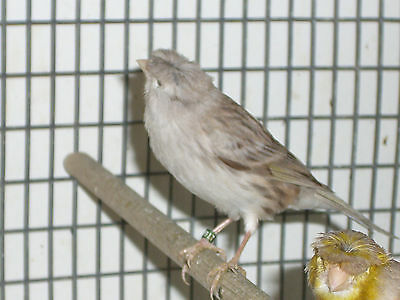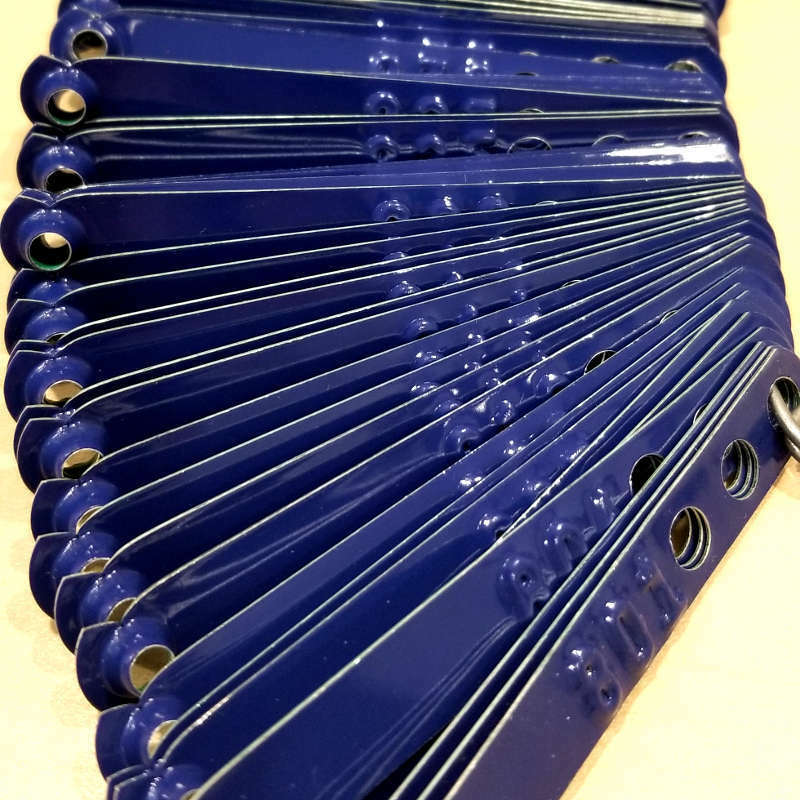-40%
AMAZING BIRD SONGS - CANARY TRAINING CD FROM THE BEST OF THE BEST
$ 4.74
- Description
- Size Guide
Description
It is not difficult to breed canaries, but to produce fine, prizewinning singing canaries is an issue of expertise, dedication and on going enthusiasm. If there are no demands with regard to the quality of the canary’s song, things are quite simple, as every cock canary sings and this may be adequate to please its owner.Fanciers and breeders of song canaries, however, regard the singing talent of their birds with great importance and develop this in their stock whether it be Harz, Roller, Waterslagers, Spanish Timbrado’s or American Singers. They must spend a great deal of their free time doing this.
Every young cock canary must be trained before he becomes a useful and calm singer. The training begins during the breeding in the nest and continues in the singing cage.
The major rule at the beginning of training is the separation of the sexes; the young cocks thus must be placed in a separate cage or aviary so that their singing is not disturbed by the hens. For good song development, they should be kept where they cannot hear the hens. But not everyone has enough room to do this. The fancier divides the aviary into three flights – one for the young cocks, one for the young hens, and one for the old breeding hens. Some very good old cocks are used as training birds in the flight with the young cocks. At first, the young cocks will make a veritable cacophony of short, unrelated rolls and flutes, wherein the experienced breeder will not be able to pick out many straight tours. (A tour is a complex series of rolls and flutes linked by harmonious transitions) The young birds do not sing all day, depending on such circumstances as the position of the aviary, sunlight type of strain from which the birds arise and sing. In general, the singing period lie between 8 – 10a.m. and 3 – 5 p.m.
In most cases, young singers are taught by a good adult singing canary called a foresinger or a tutor, which is placed either in the aviary with the young cocks or in a cage placed close to the aviary wire.
When the old tutor sings, the young cocks will imitate him and try to be as good as, if not better than him. However, it is better not to have a tutor at all rather than to have a bad one. Otherwise all of the young cocks will sing as badly.
The young cocks will not all have similar talents. Some will utter sounds that are too shrill and jarring, others will not be able to hear full tours. The experienced fancier will remove all of the inferior singers as soon as they are detected until only the best ones remain. A tutor canary should be the same variety as its pupils.
It is best to darken the “classroom” as much as possible so that the birds can concentrate on mimicking the songs. Just like human children, young canaries are distracted easily and would rather “play around” than concentrate on their “lessons”. However, darkening is not always recommended as the still young birds must enjoy their freedom as much as possible, flying and frolicking as they will. The tutor also should not use bad tones (“swearing”), as young canaries, just like children, soon will learn and repeat them.
If you do not have an excellent, first-class singing tutor, then you should try to reach your goal without a tutor. This is really possible as the song is an inherited characteristic that need not necessarily be taught by a tutor. There are many fanciers whose birds have won singing prizes without having been taught by a tutor.
Young birds that first sing their full song with an almost closed beak and an inflated crop become the foresingers, and the other birds copy them. If they have faults, then they are taken out of the hearing of the other birds. The inherited talent of these remaining birds thus can develop undisturbed and perhaps lead to unexpectedly good results.
This kind of training requires that the fancier is familiar with a good song. The recordings of good singers can be of great help and very useful.
Birds with a wide open beak, which repeatedly break their song and mostly start with high tours and notes, are practically worthless as song birds. They should be separated from the other birds as soon as possible so that they do not affect the latter.
So after 30 years of raising canaries I have made this recording of what I consider good singing. Whenever I play this tape the birds launch into song…. Sometimes even in the dark. You should know that much of my stock come from Spanish Timbrado and therefore the CD contains a rich and aggressive sound.
This tape is formatted with MP3 files and so please make certain that this format is compatible with your CD players… Check your systems before bidding. Each CD is burned from my library that is improved regularly. So, the CD will not look like one you get from record store as it is freshly burned and written on the face by hand! It's a true gem!
No international shipments as the cost are prohibitive.
Enjoy
All Singing…. No music!
Brand New









